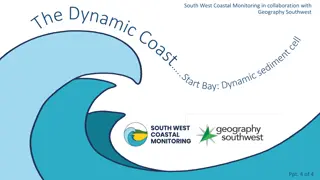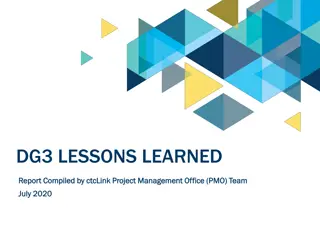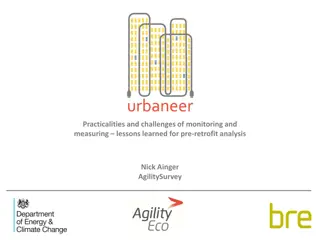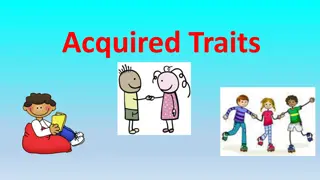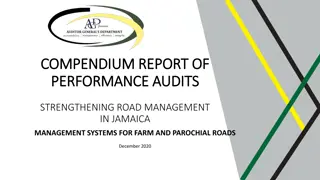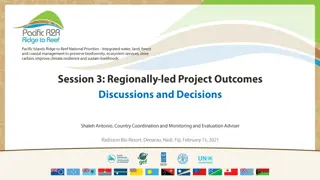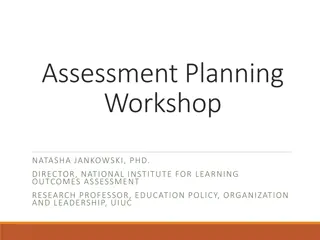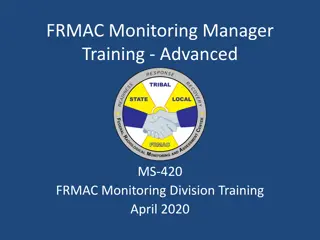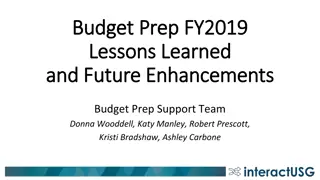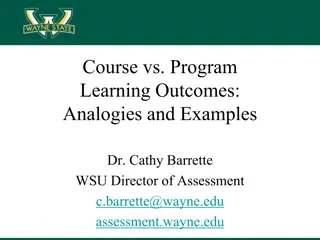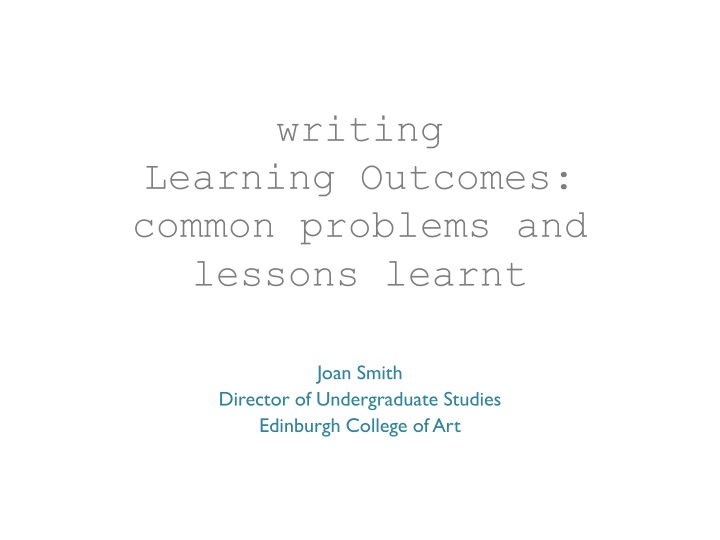
Effective Strategies for Writing Learning Outcomes
Discover common pitfalls to avoid and lessons learned in crafting effective learning outcomes for academic courses. Explore tips for achieving clarity, balance, and alignment with assessment goals while considering various considerations for improved course structures and student engagement.
Download Presentation

Please find below an Image/Link to download the presentation.
The content on the website is provided AS IS for your information and personal use only. It may not be sold, licensed, or shared on other websites without obtaining consent from the author. If you encounter any issues during the download, it is possible that the publisher has removed the file from their server.
You are allowed to download the files provided on this website for personal or commercial use, subject to the condition that they are used lawfully. All files are the property of their respective owners.
The content on the website is provided AS IS for your information and personal use only. It may not be sold, licensed, or shared on other websites without obtaining consent from the author.
E N D
Presentation Transcript
writing Learning Outcomes: common problems and lessons learnt Joan Smith Director of Undergraduate Studies Edinburgh College of Art
problems with language o Language too vague with use of ambiguous words or phrases o Language too specific with too much detail additional information can go in Course Handbooks o Too many verbs in one Learning Outcome and overuse of the same verb o Inappropriate cognitive level check language used against Frameworks Try to keep language clear and unambiguous LO s should be written to be understood by students, but also colleagues and external bodies
balance of Learning Outcomes o Should all Learning Outcomes weigh the same? You can vary the weighting of LO s if desired o How many learning outcomes per number of credits? Try to strike a realistic balance. o Progression over years of study check courses against others at different levels
other things to consider o Similar learning outcome/course structures across a range of courses? Makes comparisons between courses easier (for students and staff) o Learning Outcomes as feedback (formative/summative) o Students self-evaluating Learning Outcomes
remember o Learning Outcomes should outline what learning your students should be able to demonstrate connect with Assessment information o Avoid unrealistic Learning Outcomes and Learning Outcomes that are not or cannot be assessed
https://www.wiki.ed.ac.uk/display/ECATO/Writing+Learning+Outcomes https://www.wiki.ed.ac.uk/display/PCIM/Home



